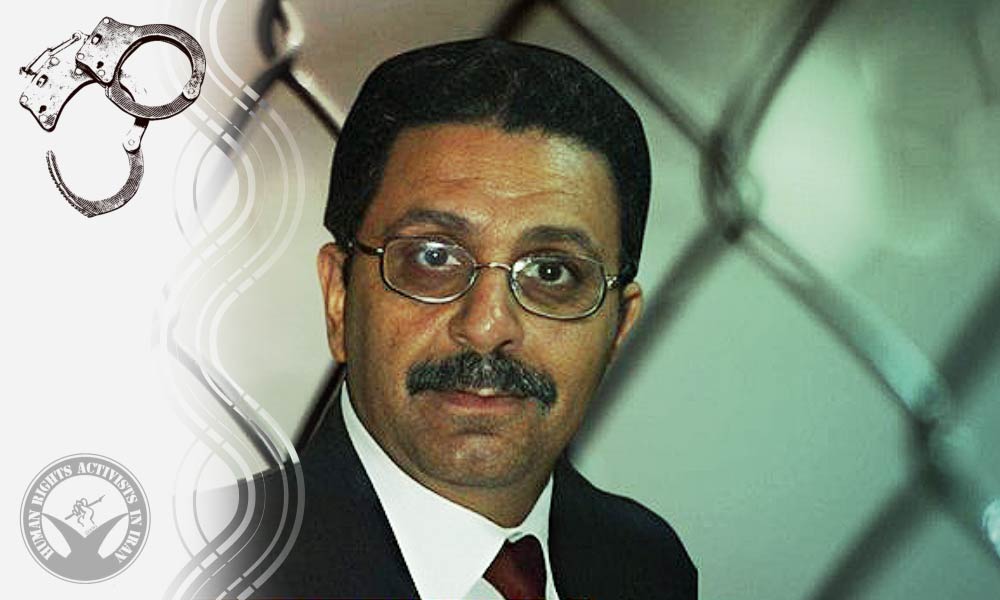Source: iranwire.com

Keyvan Rahimian, an Iranian Baha’i in Tehran – who was arrested on July 18, and for the second time in his life – was just 16 years old when in 1983 he saw up close the brutal persecution by Iran’s government of the Baha’i religious minority.
Agents of the Islamic Revolutionary Guard Corps (IRGC) charged into his home that day, four decades ago, to take his father Rahim away.
“I was studying algebra when the bell rang and four men raided our house,” Keyvan later wrote in a letter to his daughter, Jina. “One of them brought his right fist to my chin, and asked me, ‘Where is the Baha’i National Assembly’s stamp? Are you going to tell me? Or should I smash your face?’ My knees were trembling with fear. I told him that I didn’t know. My father immediately rushed into the room, and said, ‘Don’t touch him! If you have any questions, ask me.’”
The chilling testimony was first shared in the 2014 film To Light a Candle, produced by IranWire founder and editor-in-chief Maziar Bahari, which exposed the persecution of the Baha’is in Iran through the story of Keyvan and his family as well as through the creation of the Baha’i Institute for Higher Education.
Keyvan’s father Rahim was arrested, held in Tehran’s Evin Prison, interrogated, tied to a bench, and whipped and beaten. One of his arms and his teeth were broken. A letter by a fellow inmate smuggled out of the prison said that he was thrown down the hallway after being tortured, “could hardly breath” and that “his feet were bloody and swollen…he was in such pain that a convulsion shook all his body.” His feet were so damaged that the bleeding did not stop and Rahim could no longer walk.
Keyvan was in his final years of high school during his father’s imprisonment. He managed to complete his education – though as a Baha’i he was barred from entering university. He worked in a photography studio, striving also to help support the family, in his father’s absence, and became a professional photographer. But in 1983 the Iranian authorities confiscated the Rahimian home and evicted the family.
And then in March 1984, a few months after Keyvan’s father had been arrested, the Iranian authorities executed him.
Eighteen years later, in 1998, Keyvan began studying at the Baha’i Institute for Higher Education, established by the Baha’is to serve young members of their community barred from studying. Keyvan began his own higher education when he was 33 years old, studying educational psychology, and in 2009 he took his masters degree.
Keyvan also married during these years: in 2000 he and his wife Fereshteh welcomed their daughter Jina into the world.
Keyvan and his brother, Kamran, who had been able to study in Canada, had an opportunity to leave Iran to resettle in Canada or the United States. But they chose to stay in Iran and in a system that had murdered their father, stolen their home and denied them a chance to study like other Iranian youth. Part of their decision to stay was motivated by the desire to teach young people at the Baha’i Institute for Higher Education – the same informal university that had given them a chance to learn.
“I asked my wife, Fereshteh, if we had the right to make a decision for Jina and stay in Iran,” one of Keyvan’s letters says in To Light a Candle. “We’ve made the choice, and we are proud of it. But I fear Jina will question us about our decision in the future, and ask, ‘Why did you make such a decision for me?’”
And indeed, in 2011, after Keyvan received a call from the Iranian authorities, 11-year-old Jina asked him who had been on the other end of the line.
“When I told her that I had to go to prison, she started to cry. ‘Why do you have to go? Why does our family have to suffer again? Why don’t you just escape?’ I didn’t know what to say. I just held her hand, and stroked her hair, while she pressed her head against my chest and continued to cry.”
Keyvan spent five years in prison. His wife Fereshteh died from cancer. And now, during a prolonged new crackdown by the Iranian authorities against the Baha’is, he is the latest victim to be rounded up again and to be jailed again, not for being a criminal, but for being a teacher of young people and a believer in the Baha’i faith.
Keyvan is 58 years old now, and Jina is 23; for all their lives, since before their lives, they have been persecuted by the Islamic Republic for their beliefs. But Keyvan’s words make it clear that he does not see himself as a victim.
In a moving passage from his letters, shared in the closing moments of To Light a Candle, Keyvan says, “I am sorry and sad that, in my country, instead of using the knowledge and experience of people like me, we are accused of endangering the security of the nation. Islamic Republic officials know better than I do that injustice will not last forever – and that God Almighty will judge all of us by how just we have been in our lives. I, like my brother Kamran, repeat that I am happy with all the choices that I have made in my life. I hope that the sufferings of my family can help the causes of freedom, justice and progress in our country.”
IranWire’s previous reporting on Keyvan Rahimian is available in Persian and English.
August 4, 2023 11:40 am
Thank you for these reports which we will share, and also which will fuel the fire in our hearts to be courageous and steadfast.